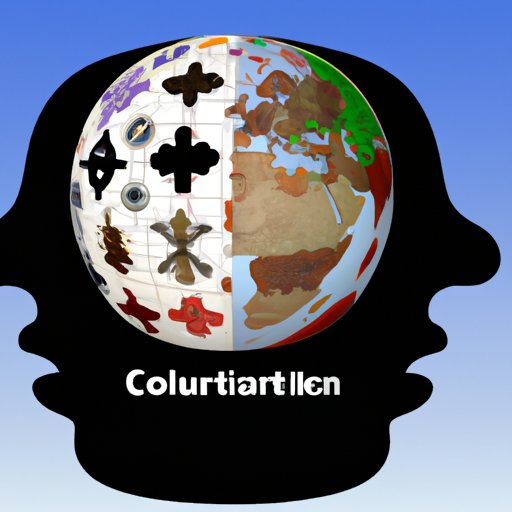Introduction
Cultural conflict is a term used to describe disagreements between two or more cultures. It’s often seen as a clash between different values, beliefs, customs and lifestyles. Cultural conflict can lead to misunderstandings, tension, and even violence if not addressed in a constructive way. In this article, we’ll explore the causes and effects of cultural conflict, as well as potential solutions.

Analyzing Causes and Effects of Cultural Conflict
Cultural conflict is rooted in a variety of societal factors. These include unequal access to resources, economic disparity, and unequal power dynamics. Historical examples, such as colonialism and imperialism, have also played a role in creating and perpetuating cultural conflict. Additionally, economic and political imbalances may be at the heart of many cultural conflicts.
The impact of cultural conflict on globalization has been significant. It has led to increased tension between nations, hindered international relations, and exacerbated economic disparities across the globe. Furthermore, it has impacted multiculturalism, as people from different cultures tend to view each other with suspicion and distrust.

Examining the Role of Technology in Cultural Conflict
Technology has had both positive and negative effects on cultural conflict. On the one hand, technological advances have allowed for easier communication between people of different cultures. This has helped to bridge the gap and create understanding. On the other hand, technology has made it easier to spread misinformation, which can further fuel cultural conflict.
Access to information is another factor that has been impacted by technology. People now have unprecedented access to news and opinions from around the world. This can both bring people closer together and drive them further apart, depending on the source of the information.
Understanding How Cultural Conflict Can Lead to Political Turmoil
Cultural conflict can quickly escalate into political turmoil. Power struggles can arise when one culture dominates another, leading to unrest and civil war. Even when there is no outright violence, tension can remain high and make it difficult to find common ground.
In some cases, cultural conflict can even lead to genocide. When one group feels threatened by another, they may resort to extreme measures to protect themselves. This can result in horrific acts of violence and hatred.

Examining the Benefits and Challenges of Resolving Cultural Conflict
Resolving cultural conflict requires a lot of work, but it can yield great benefits. Building trust and mutual respect between cultures is essential for lasting peace. Finding common ground is also important, as it helps to foster understanding and cooperation.
However, resolving cultural conflict can be challenging. People may be resistant to change, and there may be deep-seated prejudices that are difficult to overcome. Additionally, there may be political or economic interests at play that make it difficult to reach an agreement.
Investigating the Role of Religion in Cultural Conflict
Religion is often at the heart of cultural conflict. Different religions may have conflicting beliefs and values, making it difficult to reconcile their differences. Clashing values can lead to misunderstandings and mistrust, which can further fuel cultural conflict.
At the same time, religion can also be a force for good. By recognizing the shared values and beliefs of different faiths, we can find common ground and build bridges between cultures.
Conclusion
Cultural conflict is a complex issue with far-reaching implications. It is rooted in a variety of societal, historical, economic, and political factors. Technology has both helped and hindered cultural conflict, while religion can both fuel and resolve it. Ultimately, resolving cultural conflict requires building trust and finding common ground.
In conclusion, understanding cultural conflict is essential for fostering peace and harmony between cultures. We must work together to address the underlying issues that cause cultural conflict and strive to create a more equitable and just world.
(Note: Is this article not meeting your expectations? Do you have knowledge or insights to share? Unlock new opportunities and expand your reach by joining our authors team. Click Registration to join us and share your expertise with our readers.)
